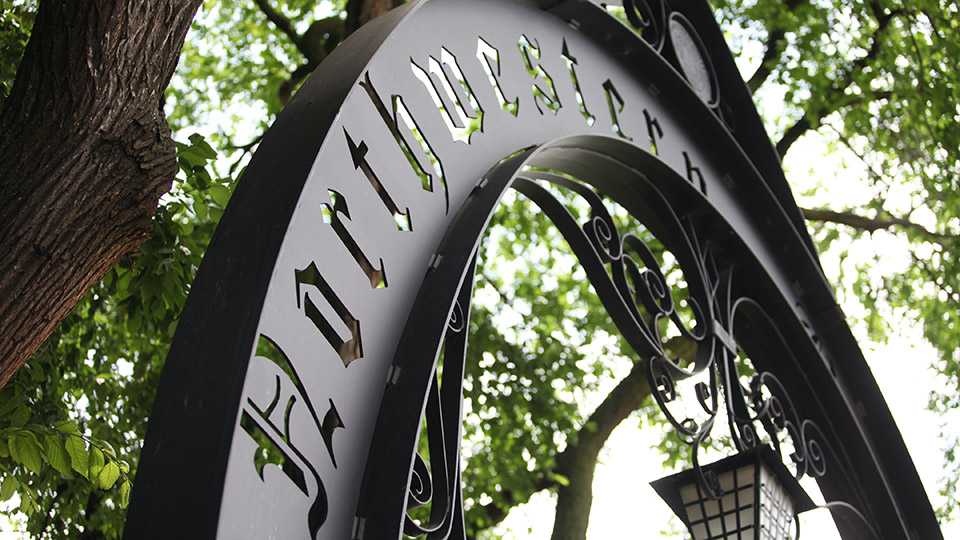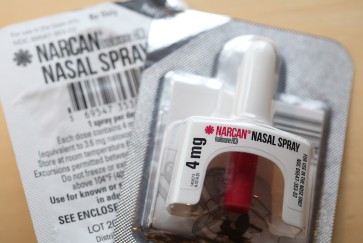As an academic cardiologist, Dr. Clyde Yancy of the Feinberg School of Medicine has spent the past 25 years studying advanced heart disease and addressing health disparities based on race and ethnicity. Now, as co-chair of Northwestern’s Community Safety Advisory Board (CSAB), he looks to apply lessons learned in health care to the challenges of campus safety and security.
“This is Northwestern University, and I emphasize ‘university’,” Yancy said. “This is a place where experiments are done, where new data are generated, where hypotheses are tested. Why can’t the hypothesis in 2021 test new ways to execute the traditional functions of safety and security?
“The systems in place were established decades ago. It is appropriate to reassess, recalibrate, deconstruct and reenvision a contemporary approach to safety and security. I think of the evolution of medicine over the same time frame. There have been epic shifts in care driven by appropriate scientific discovery. I know that model, and it is one worth testing in application to safety and security.”
Community Safety Advisory Board
Under Yancy’s leadership, the CSAB was charged last winter with reimagining the campus safety model at a time when impassioned discussion continues nationwide about the role of security personnel in society. Northwestern’s chief diversity officer, Robin R. Means Coleman, who joined the University Feb. 1, has agreed to serve as co-chair with Yancy.
The advisory board currently is considering the results of an external review of Northwestern’s Department of Safety and Security (DSS), specifically regarding security operations and the overall approach to community engagement. Board membership comprises students, faculty, staff, postdoctoral fellows and alumni, as well those representing Black, marginalized and the most vulnerable members of the community.
Related: Meet the Community Safety Advisory Board and learn more about its work
Commitments to social justice
The external review of DSS was launched as part of a set of commitments to social justice put forth by Northwestern leaders in a June 2020 message to the community as the University and the nation grappled with “fundamental truths about our world marked by heinous acts of violence and inequitable policies inflicted upon and directed at Black, Brown, Indigenous, LGBTQIA+ and other marginalized people.”
The external reviewers evaluated documents, policies and data. They also interviewed a range of campus and community stakeholders with an emphasis on the voices of Black students. The report, now available online, highlights three primary themes among more than two dozen recommendations:
- Rebuild trust in campus safety functions through an emphasis on positive community engagement, such as educational programming, clear and consistent communication, and proactive outreach to stakeholders.
- Redirect resources toward more appropriate responses, especially regarding mental health.
- Increase accountability and transparency of campus security practices.
Action items
In consultation with the CSAB, which has met several times with external reviewers, Northwestern leaders have committed to act on the following ideas by the end of June 2021:
- Response to student mental health situations: Northwestern will examine and then determine the role that DSS should have, if any, in responding to student mental health situations. Beyond June, Northwestern anticipates implementing any resulting changes in the role of DSS. This timing will help ensure that Northwestern has the right resources in place for a smooth transition. Northwestern also will identify and implement alternative transport options to the hospital for students experiencing distress instead of a marked security vehicle.
- Department of Safety and Security work analysis: Northwestern will complete a strategic work analysis of DSS activities to determine which services should be performed by alternative methods or cease altogether. Beyond the first three months, potential changes identified through this analysis would then be implemented. As with student mental health, it is imperative that any changes be handled smoothly with a clear alternative identified in order to ensure continuous campus safety.
- Complaint reporting process: Northwestern will reroute complaints about security services outside of DSS. To meet the desire for additional transparency, Northwestern also will share publicly the revised process.
- Racial identifiers in campus notices: Northwestern will review and revise its practices on when racial identifiers are used in crime notices. Northwestern also will implement standard language for these notices to reduce the level of discretion exercised in each instance.
Related: Read the complete external report and recommendations
“The changes we have pledged to undertake over the next three months, as well as those we will make in the future, will help us better reflect Northwestern values in all that we do,” said Craig Johnson, senior vice president for business and finance.
To coincide with the establishment of CSAB membership and the release of the external review, Yancy talked with Northwestern Now about lessons learned in health care, the definition of security and a key to systemic change.
As a physician, you have said there are lessons in health care that apply to safety. Can you share an example?
Particularly relevant are the lessons about health care disparities. What we’ve understood is that, many times, the overt disparity doesn’t properly attribute the root cause. Meaning to say, yes, there’s a difference in the burden of heart disease or cancer as a function of race or ethnicity. But is that because of biology? No, typically it’s because of social circumstances, structural barriers and bias.
Our awareness of the disproportionality of health as driven by social circumstances leads one to hypothesize a similar root cause in the disproportionality of safety and security as experienced by different groups of people, but especially minorities. So, this notion of sameness has to be set aside.
Do we rely too much on police for security?
Let’s pivot and start with a definition of security.
Certainly, if I’m being threatened with physical harm, I need a resource with authoritative presence. But a physical threat is not my definition of security day to day. The need may simply be navigating a campus environment, or a common area where people are gathered and not feeling threatened. What is the sense of belonging and how well does our campus environment cultivate a sense of belonging that accommodates everyone? How much of this is driven by subconscious biases?

No person wishes to be pre-judged or made to feel uncomfortable, particularly based on skin color or language or disability or any other characteristic that is deemed different. Many with whom I’ve spoken over several months have summed up the goal: is it possible to simply feel whole and well?
These recalibrated dimensions of belonging, wellness and security necessarily require a recalibration of need. In a contemporary environment, such as a college campus, the need for interdiction — though not zero — is quite low, while the need to address issues of wholeness, wellness and belonging are quite high, requiring different policies and, likely, different personnel. Creating a campus climate where interpersonal interactions are non-judgmental, supportive and respectful is the lofty goal. Safe and secure would then follow.
What is key to creating systemic change, rather than simply addressing individual occurrences?
Data. Remember, I am a clinical scientist. I’ve seen the power of data to drive decisions for the good. We are eager to see even more data assessing work outputs as those currently exist for DSS. Data will let us know what is really needed. Empiricism is of limited benefit.
When one thinks about the data and looks at it over time — and the CSAB will soon have that information — you get a much better depiction of what component of DSS, or other Northwestern entities, really should be tasked with certain duties.
What is at stake in this moment? What is the larger opportunity for the well-being of the entire Northwestern community?
To be very candid, what’s at stake is a generation of students that are attending Northwestern and a future generation that wish to attend Northwestern. Experiences in college or graduate school are preparatory for future life experiences and experiences as staff and faculty are career investments. If our collective goal really is “higher” education, then safety and security must be a fait accompli.
The world became a very different place in 2020, and many of the differences and new realities are here to stay. Expectations are different. Anxieties are different. Sensitivities are different. The stakes are higher, and there is less room for error.
It is our responsibility as senior leaders to evolve an ecosystem that enables everyone to navigate to their best trajectory, whatever that is and whatever discipline that represents. We should be able to adopt an intelligent approach here and think of a very different way of doing things without sacrificing the principles of an open campus that is exposed to the exigencies of everyday life.
When did you get a sense of how you could make an impact at the helm of the advisory board?
In November 2020 I agreed to serve as chair. The first big step was a deep listening experience. A few months later two things were very clear: (1) There is a problem, and (2) There is a universality in the desire for change.
It’s not just students. It’s staff. It’s faculty and even leadership.
And I think that really emboldened me. This work is necessary. This is how we will make Northwestern University better.


